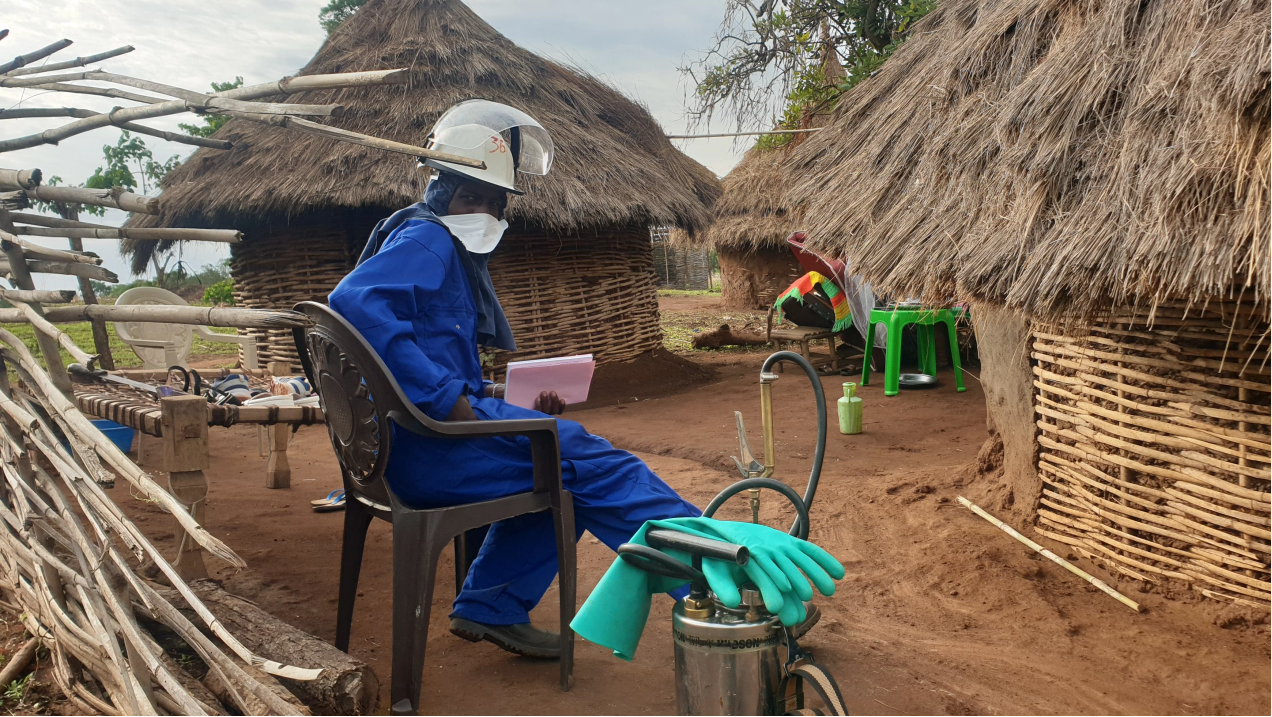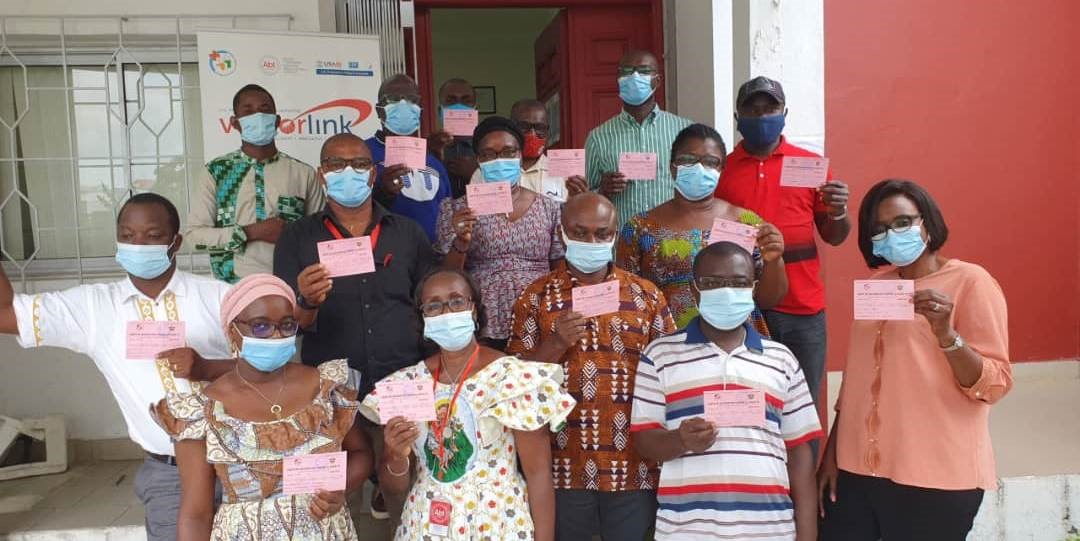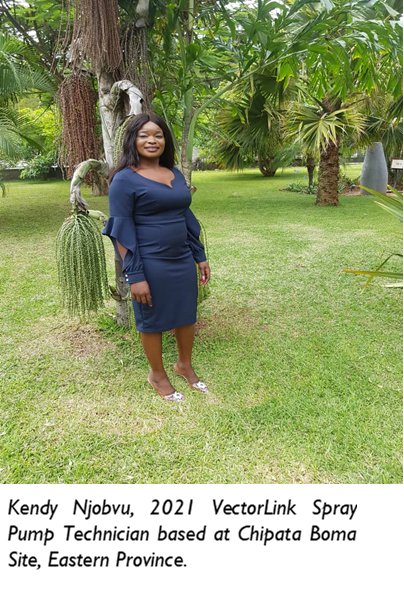 This week’s Fist Bump goes out to VectorLink Zambia’s first three female Spray Pump Technicians and to Gender Focal Point Mary Malasa and the team for facilitating their recruitment. In Zambia, as in many countries, some IRS roles are seen as exclusive to men. One such job is the Spray Pump Technician, who ensures that the compression sprayers used by spray operators are well-maintained throughout the campaign. The technician also troubleshoots challenges as they arise during field operations.
This week’s Fist Bump goes out to VectorLink Zambia’s first three female Spray Pump Technicians and to Gender Focal Point Mary Malasa and the team for facilitating their recruitment. In Zambia, as in many countries, some IRS roles are seen as exclusive to men. One such job is the Spray Pump Technician, who ensures that the compression sprayers used by spray operators are well-maintained throughout the campaign. The technician also troubleshoots challenges as they arise during field operations.
VectorLink Zambia introduced the role of Spray Pump Technicians during the 2020 campaign. Though the campaign ran more smoothly as a result, all 20 pump technicians engaged were men. The VectorLink team and particularly its Gender Focal Point, Mary Malasa, saw the challenge and set to addressing it.
Prior to the 2021 campaign recruitment, Mary contacted and collaborated with community leaders through the District Health Promotion Officers, encouraging females to apply for all roles, including Spray Pump Technicians. Maureen Mulama, a 28-year-old clinical officer from Katete District, noticed that a lot of people were applying for the usual positions of Team Leaders and Spray Operators, but few people seemed interested in the Pump Technician role, and decided to apply.
“I continued to research and watched videos of pump maintenance which motivated me more as I am someone who likes challenging roles and always wants to do new things,” she said.
Maureen is one of three female Pump Technicians who will work on the campaign this year. She is joined by Kendy Njobvu (pictured top right) and Catherine Tembo, both based in Chipata District.
Best of luck to these three trailblazers and the entire VectorLink Zambia team as they count down to the start of their campaign in late September. May these three female Pump Technicians be the first of many.
Congratulations, VL Zambia for going the extra mile!


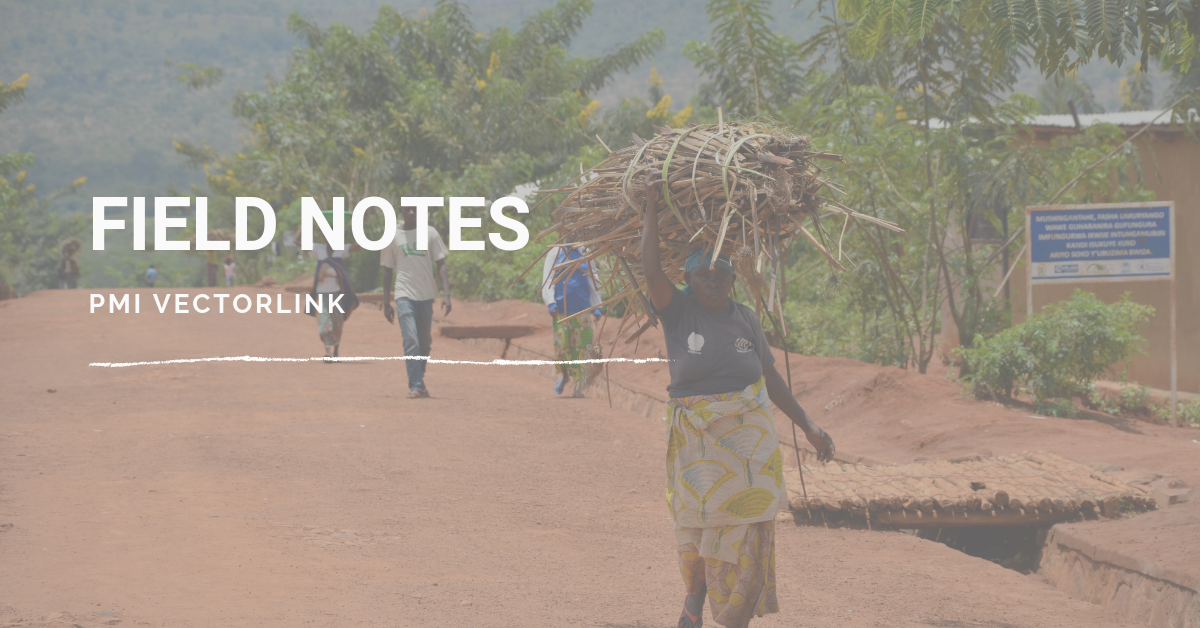
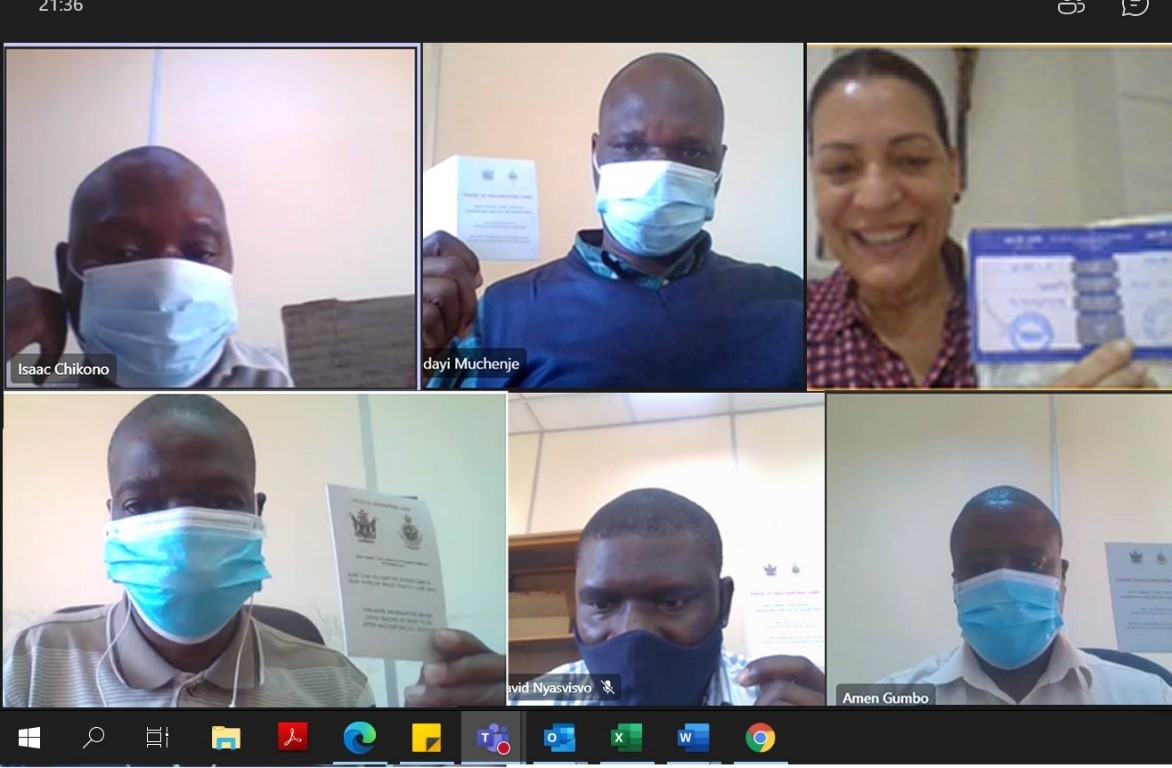 This week’s Fist Bump goes out to VL Zimbabwe for their success in getting all 12 team members vaccinated against COVID-19, with most of the team receiving either the SINOVAC or SINOPHARM vaccine. With widespread rumors circulating around the world about the vaccine, this accomplishment really shows VL Zimbabwe’s commitment to protecting public health.
This week’s Fist Bump goes out to VL Zimbabwe for their success in getting all 12 team members vaccinated against COVID-19, with most of the team receiving either the SINOVAC or SINOPHARM vaccine. With widespread rumors circulating around the world about the vaccine, this accomplishment really shows VL Zimbabwe’s commitment to protecting public health.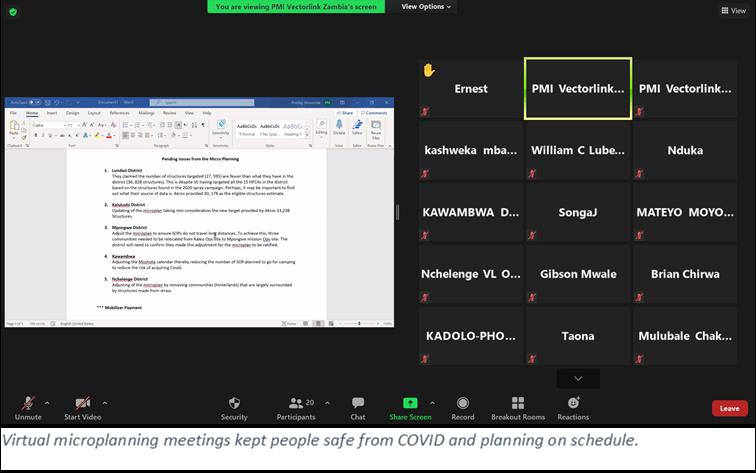 This week’s Fist Bump goes out to VL Zambia for their forward thinking in the time of COVID. Because IRS requires long lead times of planning to be successful, VL Zambia needed to ensure that microplanning at the district level was not interrupted by COVID restrictions. PMI VL engages IRS-supported districts in microplanning meetings to develop district specific activity-based plans to confirm the areas and numbers of eligible structures to be sprayed, and secure the human and material resources required for the campaign. During the microplanning meeting, the spray calendars are also reviewed and finalized. The meeting enables the project to meet and strategize with the Provincial and District Health Promotion Officers responsible for ensuring that communities are adequately sensitized and mobilized to accept the spray activities.
This week’s Fist Bump goes out to VL Zambia for their forward thinking in the time of COVID. Because IRS requires long lead times of planning to be successful, VL Zambia needed to ensure that microplanning at the district level was not interrupted by COVID restrictions. PMI VL engages IRS-supported districts in microplanning meetings to develop district specific activity-based plans to confirm the areas and numbers of eligible structures to be sprayed, and secure the human and material resources required for the campaign. During the microplanning meeting, the spray calendars are also reviewed and finalized. The meeting enables the project to meet and strategize with the Provincial and District Health Promotion Officers responsible for ensuring that communities are adequately sensitized and mobilized to accept the spray activities.
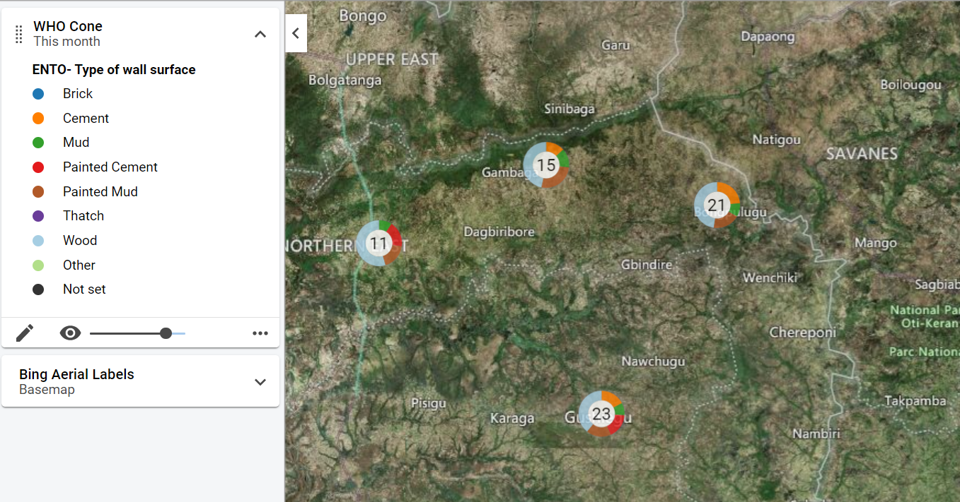 t Bump to VL Ghana for their willingness and success in pilot testing a digital entomology data collection tool.
t Bump to VL Ghana for their willingness and success in pilot testing a digital entomology data collection tool. 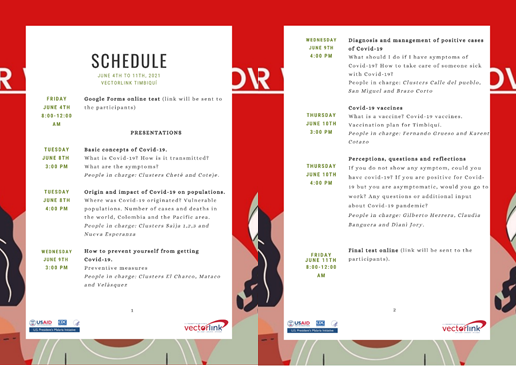 This week’s Fist Bump goes to VectorLink Colombia for their commitment to protecting public health even when malaria prevention field activities were halted due to the COVID-19 pandemic. In May, after learning that two team members from VL Colombia tested positive for COVID-19, the team went to great lengths to reduce further spread of the virus. To start, the project purchased antigen diagnostic tests for all 60 field workers in both Guapi and Timbiquí municipalities, where the project works. Unfortunately, the tests showed additional Covid cases among the team, most of which were asymptomatic. Quickly, all team members isolated at home in their rural communities apart from the three people taking care of the Anopheles albimanus mosquito colony. Those three followed VL’s strict guidelines to mitigate risks in contracting or spreading the virus.
This week’s Fist Bump goes to VectorLink Colombia for their commitment to protecting public health even when malaria prevention field activities were halted due to the COVID-19 pandemic. In May, after learning that two team members from VL Colombia tested positive for COVID-19, the team went to great lengths to reduce further spread of the virus. To start, the project purchased antigen diagnostic tests for all 60 field workers in both Guapi and Timbiquí municipalities, where the project works. Unfortunately, the tests showed additional Covid cases among the team, most of which were asymptomatic. Quickly, all team members isolated at home in their rural communities apart from the three people taking care of the Anopheles albimanus mosquito colony. Those three followed VL’s strict guidelines to mitigate risks in contracting or spreading the virus.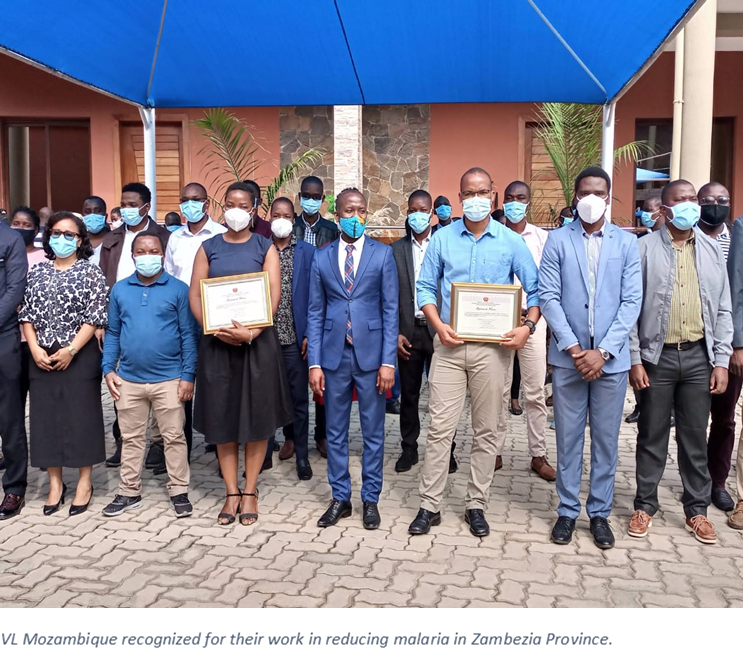 This week’s Fist Bump goes out to VL Mozambique for their work in Zambezia Province, located in the central region of the country. VL Mozambique was recently recognized by provincial leaders for their contributions in helping to reduce malaria incidence by 6% in the province in the first six months of 2021. The region also saw a remarkable decline in malaria cases in the IRS districts during this time. This was a huge accomplishment as the region saw a rise in malaria cases in 2019-2020, after a series of natural disasters that the country experienced. Cyclones, heavy rains, and flooding often result in new breeding grounds for mosquitoes, which in turn can increase the number of malaria-carrying vectors that spread the disease.
This week’s Fist Bump goes out to VL Mozambique for their work in Zambezia Province, located in the central region of the country. VL Mozambique was recently recognized by provincial leaders for their contributions in helping to reduce malaria incidence by 6% in the province in the first six months of 2021. The region also saw a remarkable decline in malaria cases in the IRS districts during this time. This was a huge accomplishment as the region saw a rise in malaria cases in 2019-2020, after a series of natural disasters that the country experienced. Cyclones, heavy rains, and flooding often result in new breeding grounds for mosquitoes, which in turn can increase the number of malaria-carrying vectors that spread the disease.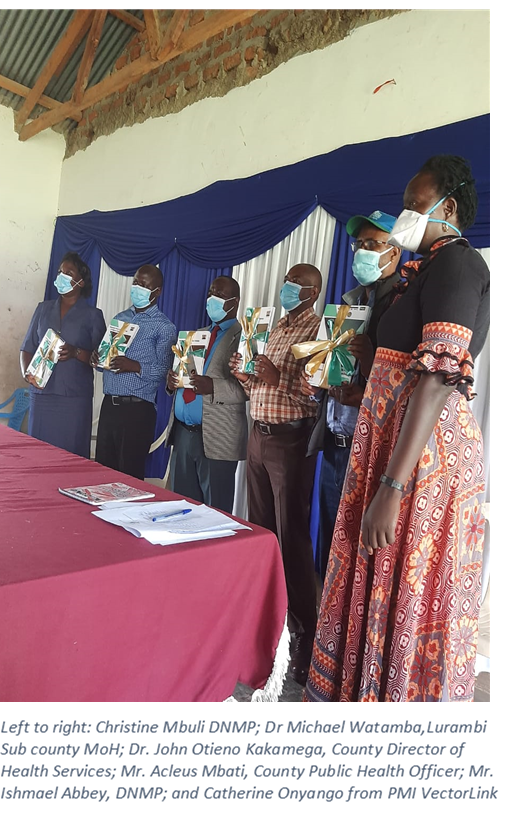 Congratulations to VL Kenya for their success in developing multiple vector control guiding documents, which were years in the making and will help guide the country in implementing vector control interventions and activities.
Congratulations to VL Kenya for their success in developing multiple vector control guiding documents, which were years in the making and will help guide the country in implementing vector control interventions and activities.